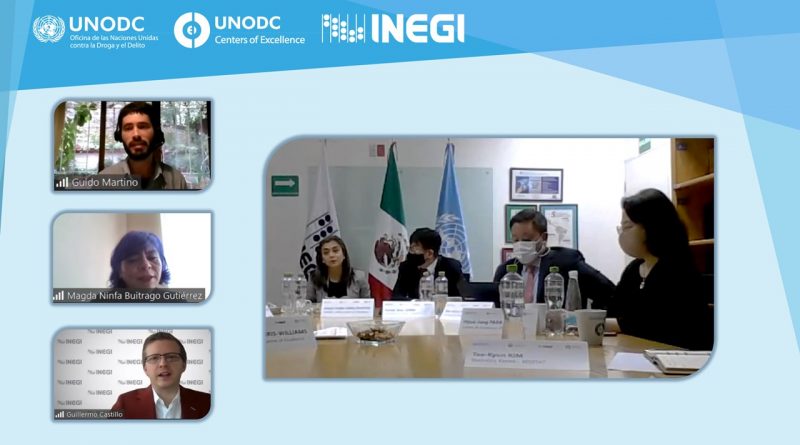ASIA AND LATIN AMERICA EXCHANGE PERSPECTIVES ON THE ICCS
On May 25, the UNODC-INEGI Center of Excellence in Statistical Information on Government, Crime, Victimization and Justice organized a meeting to exchange experiences on the implementation of the International Classification of Crime for Statistical Purposes (ICCS) in the crime and criminal justice statistical systems of different countries.
The meeting included opening remarks by Enrico Bisgno, head of UNODC Data Development and Dissemination Section; Oscar Jaimes Bello, Director of the Government, Public Security and Justice Statistics Section of INEGI; and Hyang Woo Jeong, Director of the Coordination and Planning Section of KOSTAT. They all acknowledged the progress being made by different countries to implement the ICCS, as one of the most relevant tools for the collection, analysis, and dissemination of data on crime.
Subsequently, representatives from various countries explained the process of adopting the ICCS, as well as the obstacles and lessons learned. Guido Martino, José González Rearte and Germán Leonarhdt of the Ministry of Security of the Republic of Argentina also explained the ICCS in the context of the Southern Common Market (MERCOSUR). Magda Buitrago Gutiérrez and Oscar Joaquín Villamizar of Colombia’s National Administrative Department of Statistics (DANE) explained the creation of their national classification based on the ICCS, and a forthcoming online course on this subject.
Representing the Republic of Korea, Dr. Dae Hoon Kwak, consultant for KOSTAT, explained the differences and similarities between their crime classification and the ICCS, as well as the process for developing a correspondence between them for international reporting purposes. Finally, Guillermo Castillo Koschnick, from INEGI in Mexico, described the process of adopting the ICCS through the revision of the Technical Standard for the National Classification of Crimes, as well as the approval consultation process.
At the end of the session, Salomé Flores, Coordinator of the Center of Excellence, said that the exchange aimed to strengthen collaboration between countries and UNODC in the field of statistics on crime and criminal justice in order to produce high-quality and reliable data, reaffirming the Center of Excellence’s support for these purposes.



